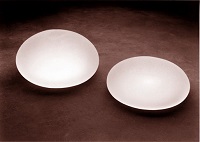
At this time, the exact number of cases of ALCL is extremely difficult to determine because of a lack of data on implant sales and worldwide reporting conditions. Researchers believe that the texture of certain types of implants may be a root cause of the development of the disease. As opposed to implants with smoother surfaces, those with an external texture can cause internal tissue abrasions that may lead to inflammation and the accumulation of a pocket of fluid called a seroma. This can eventually lead to abnormal cell development. In addition, bacteria may cling to the surface of the implant and create a harmful biofilm.
ALCL has been identified most frequently in patients undergoing implant revision operations for late onset seroma. In order to track and evaluate the disease, the FDA collects and reviews medical device reports; exchanges information with international regulators and scientific experts; and reviews data from breast implant manufacturers. The agency also reviews data from the Patient Registry and Outcomes for Breast Implants and Anaplastic Large Cell Lymphoma Etiology and Epidemiology (PROFILE) registry.
Knowledge regarding the diagnosis and treatment ALCL may also be deficient in the medical community. As recently as 2015, only about 30 percent of plastic surgeons were discussing ALCL with their patients. Depending on the type of implant used in the procedure, this could be alarmingly low. According to one surgeon who is actively involved in the research on the topic, the risk of a woman developing the disease is 67 times higher if they have received a textured breast implant. This equates to about one in every 30,000.
In order to screen for ALCL, patients must undergo what is known as a CD30 test, which collects and examines a specific fluid. Without a CD30 test, the disease can easily be mistaken for others, potentially leading patients to undergo rounds of unnecessary tests that may ultimately cause more harm than good.
Currently, women who have received textured breast implants are not being urged to have them removed. However, it is critical for women to remain vigilant regarding their ongoing medical care. Levels of proficiency regarding the care and treatment of medical problems arising from breast implants varies widely. Ensuring that your provider is up-to-date regarding the latest research could be the difference between enduring complications or life-threatening disease and living a healthy life.
